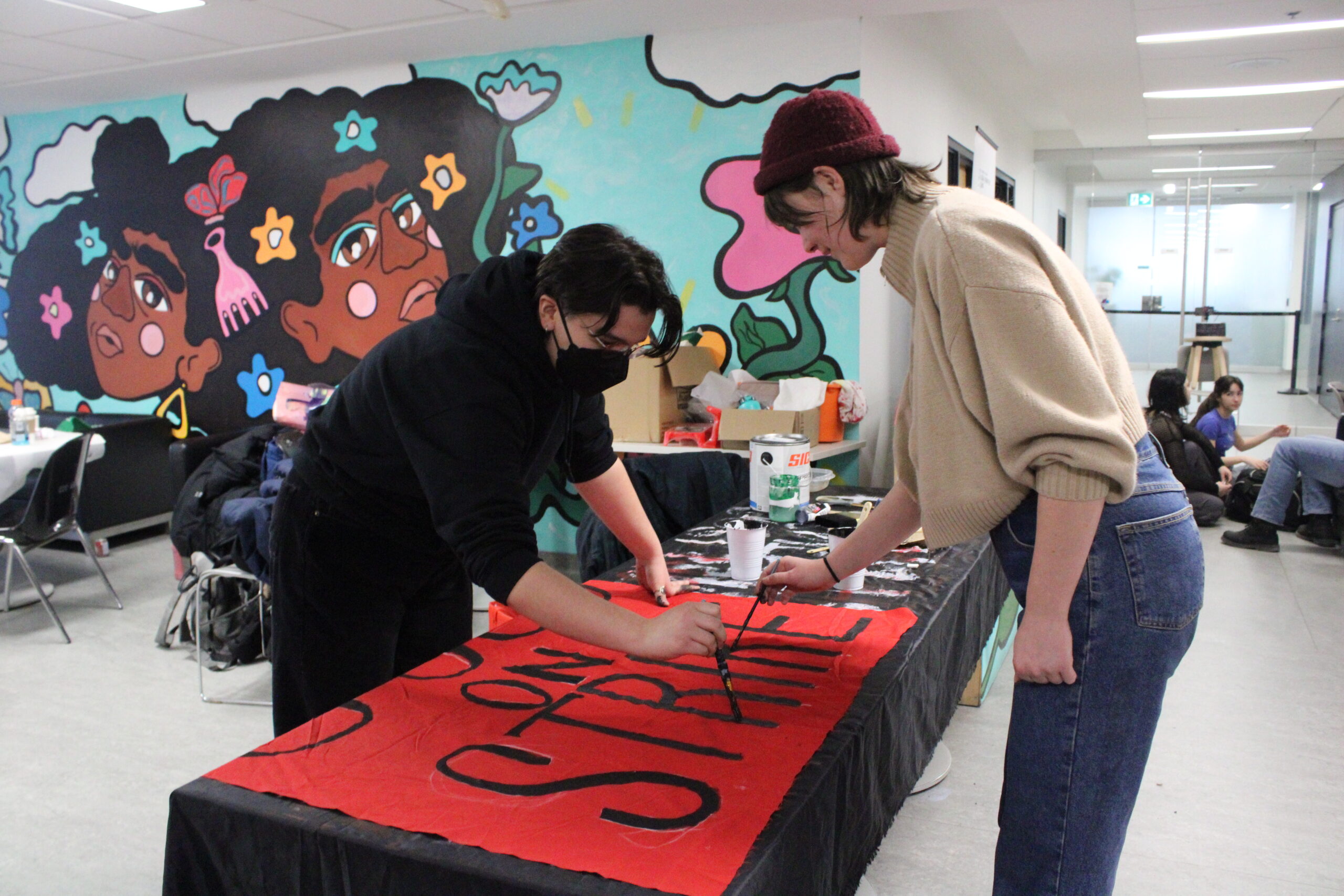The Concordia Student Union and Arts and Science Federation of Associations hosted a banner painting event and picketing workshop.
Last Monday, Jan. 29, the Concordia Student Union (CSU) and the Student’s Society of McGill University (SSMU) began their week of action against the proposed provincial tuition hikes. A banner and sign making workshop co-hosted by the Arts & Science Federation of Associations (ASFA) and the CSU took place at 11:00 a.m. in the Art Nook located on the 7th floor of the Hall building.
At the same location, a “Picketing 101” workshop was held from 3:00-4:30 p.m. the next day. During the event, ASFA mobilization coordinator Lily Charette spoke about the history and importance of strikes in the context of student activism in particular.
“When you have 10,000 students fail a semester [due to strikes] and they have to go back and retake that semester, you’re essentially doubling the amount of tuition that the government is paying for that one semester of school because everyone has to retake it,” she said, explaining how strikes put financial pressure on the government.
Charette also discussed ways the strikes put pressure on universities themselves, including on the ‘double cohort effect.’ “When you have a large group of students in a lot of departments fail a semester and have to retake that semester, [the university] now has major logistical issues in terms of having double the students having to take that 200- or 300-level class,” she said.
Students attending the banner and sign making workshop designed several banners that were used during picketing on Jan. 31 and Feb. 1-2. At the workshop, several students expressed enthusiasm about supporting the strikes, including second-year environment and sustainability science student, Maria Jennett.
Jennett spoke to The Concordian about the impact of tuition hikes on current students: “Arts and science has already cut 10 per cent of classes, so the choices available to us are already going to be greatly reduced.”
She also touched on the inherent issues of the policy. “There are exemptions for students coming from France and for Francophone Belgians, but not for all of the Francophone countries in Africa. I think that’s blatantly racist,” she said.
Fourth-year sociology and anthropology student Chloe Mayes chimed in with Jennett. “I see these tuition hikes as part of a broader politic of neoliberal austerity and the gutting of our public institutions and I resist that wholeheartedly,” Mayes said.
At the picketing workshop, ASFA academic coordinator, Angelica Antonakopoulos, spoke to the importance of organizing student movements around the current capacities for mobilization. “When we have smaller strike actions, a lot of [the importance] is about building momentum to be able to have the capacity to take these larger actions,” she said.
Several other events were hosted in preparation for the strike. These included workshops covering lessons from the 2012 student strikes, Black radicalism, legal self-defense, prison abolition, anarchism & the student movement, and a screening of 5 Broken Cameras, a 2011 documentary covering Palestinian resistance in the West Bank.
